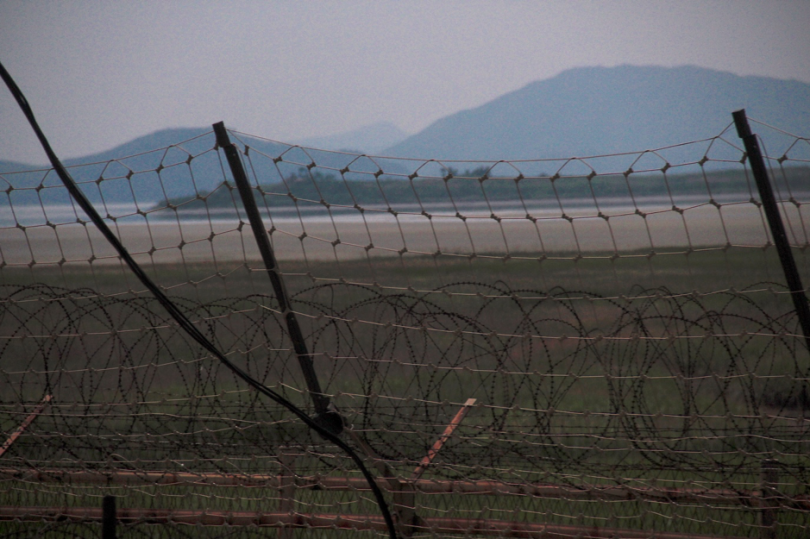The leader of the Democratic People’s Republic of Korea (DPRK), Kim Jong-Un, is hoping to attract 2 million tourists by 2020. It’s tempting to peek behind the curtains the infamous and seemly impenetrable nation-state.
But is it a good idea?
We know some Australians already have DPKR ink in their passports. What we don’t know is how many. Koryo Tours runs western tour groups in North Korea. According to their general manager, Simon Cockrell, around 150 Australians travel with them every year.
“It is higher than most other countries but lower than the main ones in the market of so-called ‘European’ tourists which would be the UK, Germany, Canada,” he said.
The Australian Bureau of Statistics collects data on where we travel. But, these stats are based on the self-declarations and the numbers for North Korea are low and inconsistent; it would appear few people are interested in declaring their totalitarian vacation to the state.
For years, the Australian Department of Foreign Affairs have been urging Australians to “reconsider their need to travel” to North Korea. It could still be a dangerous trip – a point made even more poignant by the story of Alek Sigley, the only recent Australian resident of The People Democratic Republic of Korea. Earlier this year he was arrested by North Korean police under suspicion of espionage.
Before his arrest, he studied at Pyongyang University and co-owned Tongil Tours, a company which helped foreign tourists experience North Korea first hand. Thanks to intervention by the Swedes, he has since made it back to his family safe. But the business will be shut down until further notice.
It’s easy to get caught up in the sense of adventure that comes with travelling to a place where few Australians have before. It’s easy to forget that North Korea is a totalitarian dictatorship suspected of horrible wrong-doings. A not-for-profit organisation called The Global Slavery Index estimates around 10% of North Korea’s population is subject to modern slavery with a “clear majority forced by the state”. In 2015, The European Alliance for Human Rights in North Korea told The Guardian this tourism only “funds and legitimises” the oppressive regime. A holiday to North Korea could lead you to be indirectly complicit in the enslavement of millions.
However, this was not the experience of Melbourne based photographer Josh Robenstone, who travelled to North Korea earlier this year. His days in the DPRK were spent bonding over a mutual cultural obsession with sport and feeling privileged to be there.
“People are people and we’re all just the same,” he said.
He believes a lot of people in North Korea would rather tourists stayed away to avoid “corrupting the values of the country”. But, for some, foreign tourists are a welcomed opportunity to learn about the outside world. While he recognises there are some ethical issues, he doesn’t believe this is unique to North Korea.
“If you took that into consideration while travelling, there are plenty of other popular countries you’d have to put a cross though.”
On the other hand, tourism could provide a well-needed boost for the country’s economy. Among other issues, North Korea suffers from extreme food insecurity. In 2016, the United Nations predicted almost half the country is undernourished.
Meanwhile, across the border, according to Tourism Korea’s website, South Korea raked in more than 15 million dollars from tourism last year–that’s a whole lot of food. Given the well-established link between poverty and food scarcity, perhaps promoting travel could benefit the millions of suffering people that call North Korea home. After all, the misdeeds of the countries government likely don’t reflect the majority of North Koreans who would benefit from a more healthy tourism industry.
There is little hard data about what goes on inside the borders of the DPRK. Likely, we’ll never really know what impact tourism has on the state. Therefore, the ethics around travelling to the country as a tourist are unclear; murky water for one to dip their toes into.

